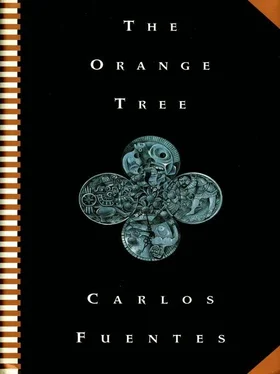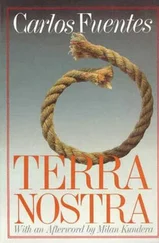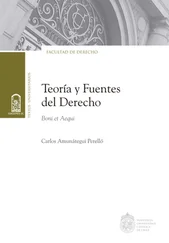MARTÍN 2
I’m making an effort to ingratiate myself with you, Brother Martín. I accept that, for different but ultimately shared reasons, we have something to do together. We’d be better off doing it with a good will, I think, like good pals. It doesn’t matter if you treat me formally and relegate me to the third person. Look: to please you, I’ll personally tell the manner in which you returned to Mexico at the age of thirty, in the year 1562. Your return took place amid the joy of all the sons of the conquistadors: by then there was a second generation of us, and in you they saw the justification of their Mexican wealth, if they had it, and the justice of demanding it if they didn’t.
They all gathered in the main square of Mexico City to receive the criollo son of the conquistador. They all contributed out of their own pockets: Mexico City was rich — there wasn’t a poor Spaniard in it. There was such an abundance of silver that even the beggars got rich because the least amount of money anyone ever gave was four silver reales. We all know that in Mexico fortunes are made quickly; but in the years just after the conquest, if you were a poor Spaniard all you had to do was become a beggar and in a short time you could found an entailed estate, even if that annoys the children and grandchildren, ennobled now, of those beggars.
This is a country, as you well know, where money grows on trees: after all, the most common form of money among the Indians is cacao, which grows on a bush the size of an orange tree and whose fruit is the size of an almond. A hundred of them are worth a real. All anyone has to do is sit back on a mat in the marketplace and sell cacao, and he can end up, like that gentleman Alonso de Villaseca, with an estate worth a million pesos. That should give you an idea of how monstrous a celebration the arrival of my brother Martín Cortés was when he came from Spain and entered the main square of Mexico City: it was crowded with more than three hundred horsemen on very fine horses and saddles, wearing silk livery and cloth of gold. Then they put on mock jousts and duels in honor of the conquistador’s son. Later, two thousand more horsemen wearing black capes to make a greater effect entered the plaza, and at windows appeared the ladies (as well as some who weren’t) wearing jewels and tiaras.
The viceroy himself, Luis de Velasco, came out of the palace to receive my brother with an embrace. But if the viceroy was looking at a square which had only been loaned to him, my brother could look at his own property: the center of Moctezuma’s capital, where our father took the palaces of Axayacatl to build the Old Houses for himself and his people and, on top of Moctezuma’s palace, the New Houses, that is, the palace from which the viceroy emerged to greet you, Brother Martín. I saw it all from the construction site of the cathedral of Mexico, which had just been begun. I was there, amid scaffolding and screens, no different from the bricklayers and carriers crowded together, they so far from the luxury surrounding you, they without silver, without entailed estates, without even the cacao beans, their faces scratched by smallpox, snot running out of their noses because they still weren’t accustomed to those vile European colds.
And I, Brother, watching you, surrounded by glory, make your entrance into the city conquered by our father. I, Brother, standing on what was left of the vast Aztec wall of skulls, on top of which the cathedral was beginning to rise. I stopped looking at the horsemen and their mounts. I looked at the grimy people around me, wearing only cotton smocks, barefoot, their foreheads wound with ropes and their backs loaded with sacks: I thought to myself, My God, how many Christians will someday come to this cathedral to pray and never imagine that on the base of each column of this Catholic temple is inscribed an insignia of the Aztec gods? But, with your permission, the past was forgotten and the Crown restored a part of our father’s estate to my brother, a reduced portion, but still the greatest fortune in Mexico.
MARTÍN 1
That’s what I like to remember! Just imagine that in the great Mexico City the art of toasting was unknown. It fell to me to introduce that Spanish custom at dinners and soirees. No one in Mexico knew what it was! I made toasts fashionable, and there were no gatherings of hidalgos, descendants of conquistadors, or mere viceregal officers where there weren’t toasts, amid joy, drunkenness, and disorder. Let’s see who can drink the most, who can be the wittiest, and who would refuse to carry through to the end! The toast became the center of every party, and if someone refused to accept a challenge, we would snatch off his cap and cut it to shreds before everyone. Then a hundred of us, wearing masks, would ride out on horseback and go from window to window talking to the women and entering the houses of gentlemen and rich merchants to speak with ladies, until those good men became enraged at our behavior and locked their doors and windows. But they did not take our ingenuity into account: we reached the balconies of the ladies with long blowguns, whose darts carried flowers. Nor did they take the audacity of the ladies into account: defying paternal and marital orders, they would peek between the shutters to look at us gallants. My life in the capital of New Spain at that time was pure pleasure: joy, wit, honor, and a thousand seductions.
Who did not see in me my father reborn and now enjoying the benefits of the well-earned fruit of the conquest? Who didn’t admire me? Who didn’t envy me? Who among the handsome and elegant in this capital of novelties — male or female — did not gather seductively around me? I already know what you are going to say. You. Martín Cortés, the second-rate, the mestizo, the son of the shadows. Without you, I could do nothing in this land. I needed you, son of La Malinche, to carry out my destiny in Mexico. What a disgrace, my disgraced brother: to need you, the least seductive of men!
MARTÍN 2
There was no one more seductive, of course, than Alonso de Ávila, whose richness of attire could not be found even in the courts of Europe. To his luxury he added the natural wealth of a land of gold and silver, and to those Mexican metals, he added the contrast of the whitest skin ever seen on a man, here or there: only the whitest women were as white as Alonso de Ávila, who perhaps looked even whiter in a dark-skinned land. And what he allowed others to see were his dazzling hands, which moved and led and, sometimes, even touched, with an airy lightness that made air itself seem heavy. My, how light this Alonso de Ávila was, forced to walk on mere earth only because of the richness and gravity of his damask and jaguar-skin suits, his gold chains, and his tawny mantle decorated with a reliquary — all of it lightened, let me assure you, by the feathers in his cap and the volutes of his mustache, the wings of his face.
Martín and Alonso became friends; together they organized and enjoyed the toasts and masquerades; they admired each other, like young, rich hidalgos who are surprised to find themselves occasionally (as I surprised them more than once from the shadows) admiring each other more than they admired the women they courted. They competed to conquer a beautiful lady only in order to imagine her in the arms of the other; they screwed, the bastards, so each one could imagine himself in the place of the other. That’s how close Alonso de Ávila and Martín Cortés were.
What’s so strange about that in this realm of luxury and parties, disorder and feasting, mirrors and more mirrors, perfumes, and mutual admiration? What’s so strange about Martín and Alonso, Alonso and Martín, the son and heir of the conquistador, Hernán Cortés’s prodigal son, embracing the nephew of another headstrong captain of the conquest, Ávila the King’s commissioner? He was the rogue who dared put his hand (Mother herself saw it and told me) on Moctezuma’s gold vestments, the son of Gil González, commissioner and land dealer, who stripped the real conquistadors of their lands, confidence man and fraud, who wisely hid his wealth only so his sons, Alonso and Gil, could show it off and spend it. The two joined in a whirlwind of pleasure. My brother Martín and this Alonso de Ávila brought their pleasure to its greatest heights in a singular party. The pleasure of telling about it I leave to my brother Martín.
Читать дальше












